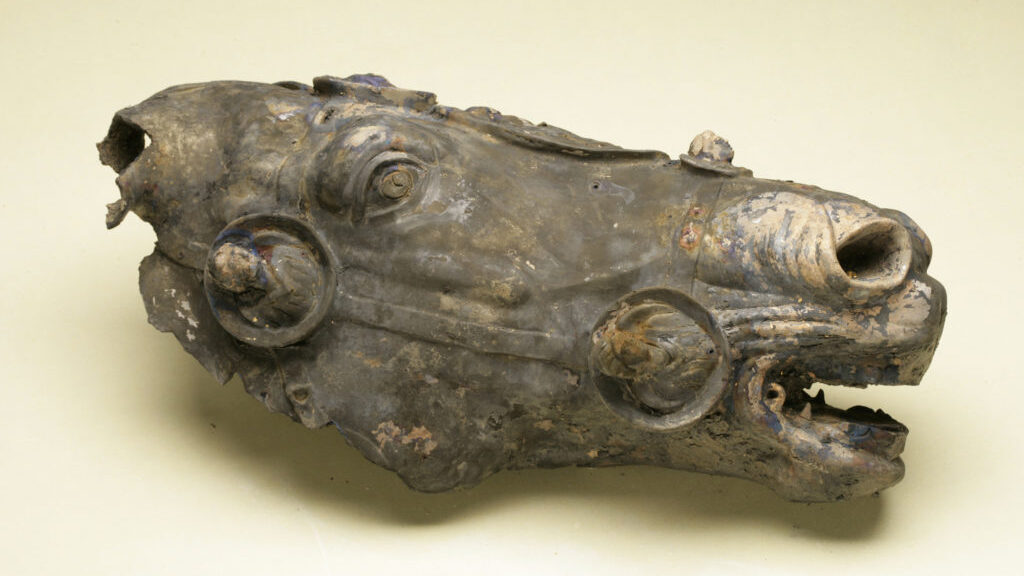A German Farmer Was Just Awarded Almost $1 Million for an Ancient Roman Bronze Found on His Property
In Lahnau, Germany, an archeologist uncovered a roman bronze sculpture. They knew that the discovery was both rare and precious.
The property owner received payments for the head of the bronze horse found at the bottom of his well and everyone seemed content with the situation. But new information emerged – information which has cost the local government almost one million dollars.
The Roman horse head, 2 000 years old, was discovered on the farm in 2009. The man, who was not identified by the media, was initially awarded € 48,000 (about $55,946) for the fragment of sculpture by Daily Sabah.

He seemed content with the payment until he found out, as BBC News reports, “about the gravity and value of the discovery, which was trumpeted as one of the best-preserved Roman bronzes in the world.”
It is an important discovery. Experts believe the gold leave-adorned horse head comes from 9 AD and was once part of a large statue depicting Augustus on horseback.
Born Gaius Octavius Thurinus (23 September 63 BC – 19 August 14 AD) and known as Octavian before taking leadership of Rome, Augustus was the adopted son of famous Roman dictator, Julius Caesar.
Following the events of the Battle of Actium in 31 BC, Augustus became the first Roman emperor. Emperor Augustus ruled for 40 years before he died.

He is remembered for his victory against his enemies Mark Antony and Cleopatra, but also for his patience and efficiency. His administrative skills helped him create durable peace and prosperity for his empire. Augustus’ rule was autocratic, but he knew how to hide that fact under well-made propaganda.
He was politically ruthless, and sometimes even cruel, but his temper apparently cooled as his time as emperor advanced. Augustus also had an interest in philosophy and poetry, leading him to write on both subjects.
Even today, Augustus is considered one of the most efficient, yet controversial, of all Roman leaders. There are many statues and busts of this Roman emperor.

The Roman bronze horse head from the German farmer’s property weighs about 55 pounds (24.95 kg) and is almost 20 inches (50.8 cm) long. It was found underwater in a 36-foot (10.97 meters) well. Experts believe the artifact was probably abandoned when the town’s inhabitants had to flee a surprise attack.
Once the farmer became aware of the importance of the Roman bronze sculpture he decided to sue the government for a better payout.
The Limburg regional court decided on July 27 that the local government now owes the farmer €773,000 (about $904,000) plus interest. That’s roughly half the estimated value of the Roman bronze horse’s head.
It’s unknown if the local authorities will make an appeal against the court’s decision.
Another fascinating Roman discovery was announced in Germany. Construction workers found the walls of a Roman library built about 2,000 years ago in the heart of Cologne. It is believed to be the oldest ruins of a public library in the country.

